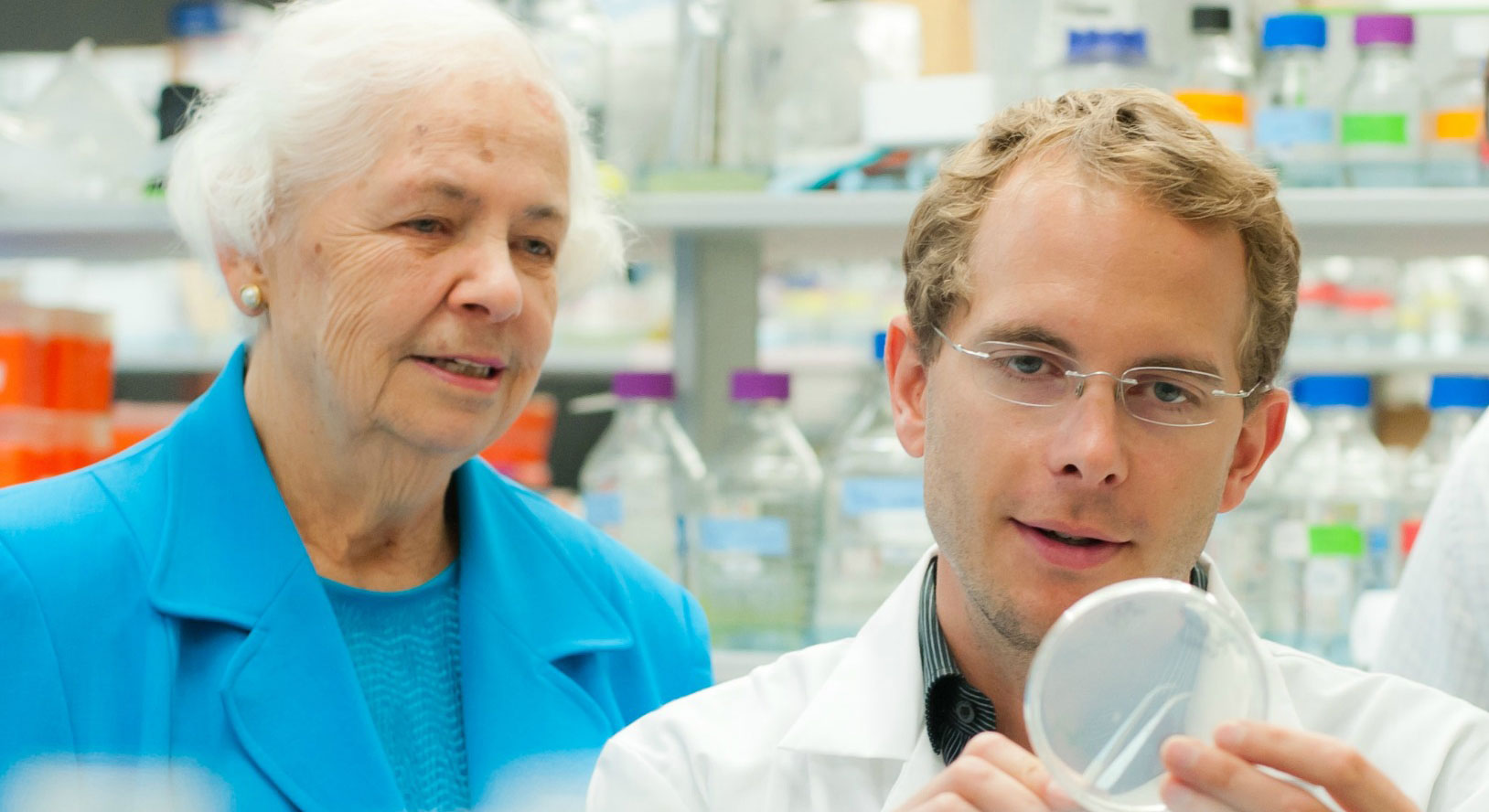Common illnesses touched the lives of Clarence and Velma Clark, as they do most families. Clarence’s mother lived with early-onset diabetes and relied on insulin injections, and cancer took his sister’s life. Their family received excellent health care at the time, but Clarence and Velma knew the solutions of the future— leading to even better health care that saves and improves more lives — originate in basic science.
The couple thought there must be people at their local university with knowledge and ideas who are working on solutions – and might even have a solution – but need resources to take it further. “If we can help, let’s do it,” the Clarks decided.
It was the mid-80s, before UBC had an established team to facilitate donations. The couple sought out a way to support a student’s summer research in basic science on an annual basis and make an estate gift to medical research. In 1991, Clarence passed away of heart disease with complications due to diabetes.
When Velma was updating her will 20 years later, the Faculty of Medicine arranged for her to tour the Life Sciences Institute. Leading scientists investigating the heart, the brain and diabetes described their research to Velma and showed her their laboratories. She had the opportunity to peer into microscopes and ask questions.
“The tour reinforced for me that the decision my husband and I made back in 1986 to support medical research is just as relevant today,” said Velma. Even after learning about current research related to the diseases that affected her family, she chose not to direct her gift to a specific area.
“Faculty members know better than me where my money can have the greatest impact. This is especially important because needs will change over time,” said Velma. “A problem of today might be solved tomorrow, and I want my money ready to solve the next problem.”
The Faculty of Medicine’s world-class investigators in the life sciences are making discoveries that lead to advancements in patient care. On her tour, Velma met professors and fellows who were at the forefront of life-saving discoveries. For example, she saw vital research that used innovative atom-by-atom substitution to uncover why certain anti-arrhythmic drugs have dramatically different effects on the heart’s behaviour than others. Their discovery is still leading to better treatments for irregular heartbeats, which are a leading cause of stroke.
Although Velma passed away in 2013, the Clarks’ foresight lives on through an estate gift inspired by UBC research. Only time will tell what groundbreaking work the Clarks’ vision and generosity will support next.
